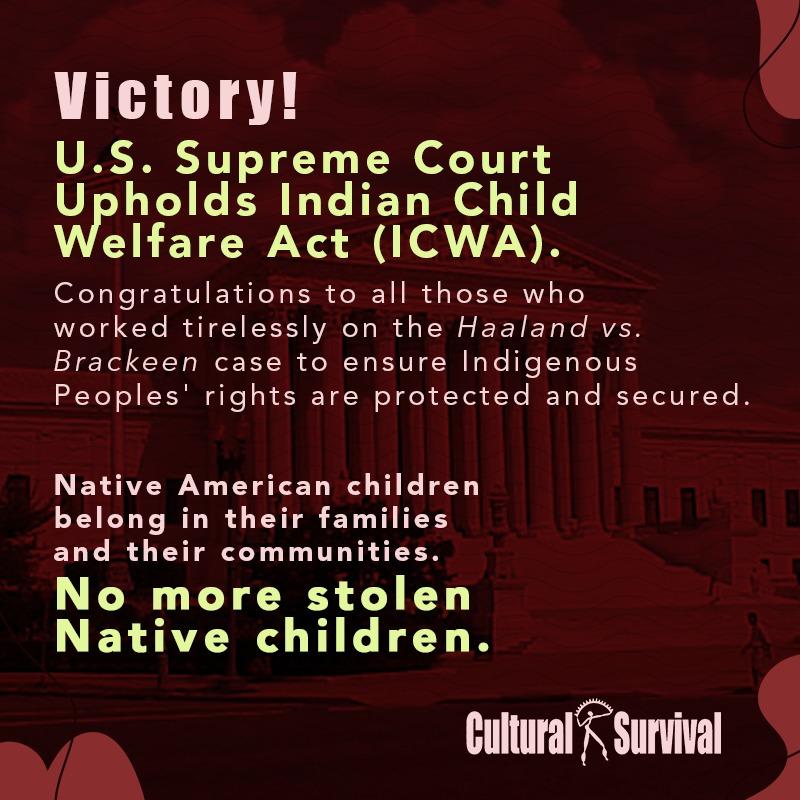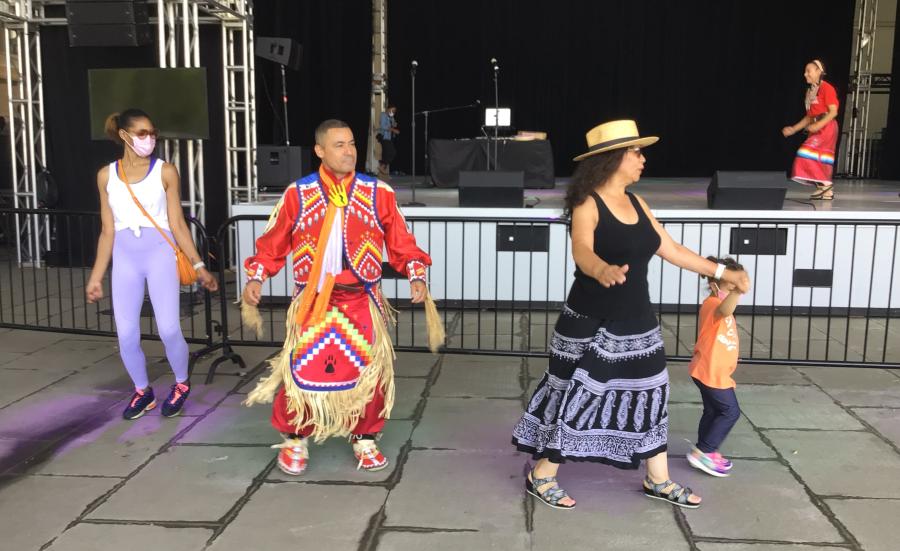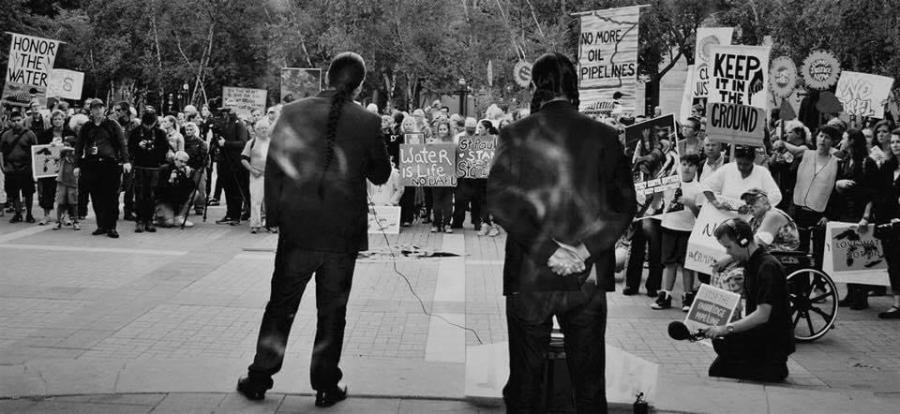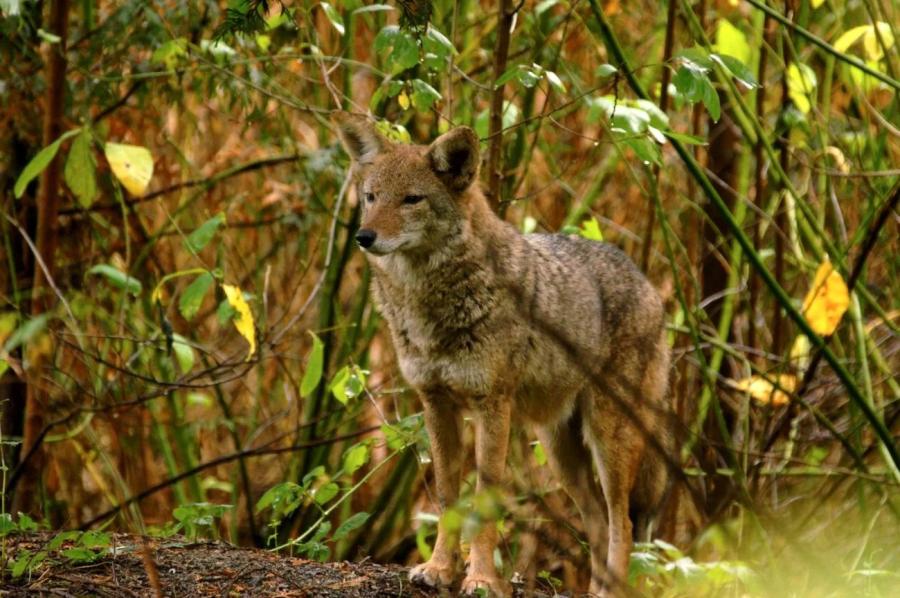
For decades, legal challenges have been launched with an underlying goal of undermining Tribal governance and sovereignty across the United States. Last year, in Oklahoma v. Castro-Huerta (2022), the Supreme Court narrowed the scope of its previous landmark ruling in McGirt v. Oklahoma (2020) by ruling that state governments have equal jurisdiction to Tribal and federal governments in prosecuting violent crimes against or by Native Americans on Tribal land. This ruling asserts equal power to state governments across the country while implicating Tribal sovereignty.
Against this backdrop, the stakes were high for the adjudication of the constitutionality of the Indian Child Welfare Act (ICWA) in the case Haaland v. Brackeen, as Supreme Court decisions have broad implications for other Tribal-U.S. legislation. In an expert panel discussion organized by the Global Alliance for Behavioral Health and Social Justice, Alyssa Mercado, a lawyer practicing Indian law, described the legal challenge as “the most dangerous case to be before the Court, as this decision can impact other areas of Indian law such as Tribal sovereignty.”
The Indian Child Welfare Act was passed in 1978 and is regarded as a direct response to the large numbers of Native children who were separated from their families by state child welfare and private adoption agencies—many of whom were displaced by the Indian Adoption Project (1958-1967), a federal program that sought to place Native children with white families under the auspices of child welfare. This new method of forced assimilation picked up where the atrocities of the boarding school era left off, and once again, Native children were forcefully removed from their families, Tribes, and culture.
According to research cited by the National Indian Child Welfare Association, prior to the Indian Child Welfare Act, 25-35 percent of all Native children were removed from their families, and of these children, 85 percent were placed outside of their Tribal communities and families, despite the availability of relatives to take care of them. Even today, more than 40 years after the implementation of ICWA, a 2021 report shows that Native children are up to three times more likely to be removed from their families and communities than white children.
Under ICWA, states are bound by federal requirements in state adoption and custody proceedings involving Native children who are members, or eligible for membership, of a federally recognized Tribe. One of the most significant stipulations of ICWA is that preference is given to relatives and the home Tribal community, making it customary for extended families to adopt if biological parents are unable to care for the child. In this way, ICWA reflects the customary Tribal approach to childcare in which children are cared for by the community; the community as a whole is responsible for the education, caregiving, learning, and health of any child belonging to the Tribe, ultimately protecting and promoting a sense of identity, self-worth, and community resilience.
Melissa Tehee (Cherokee), who has degrees in Clinical Psychology, Policy, and Law, also spoke on the panel, underlining the Indian Child Welfare Act’s role in safeguarding identity formation for Native children. “A part of identity formation is understanding your culture. So [adoption and foster care with white families] is one more way to remove Native kids from their culture…those things lead to more negative coping strategies, including addiction, family dysfunction, etc. Understanding who you are truly leads to wonderful outcomes later in life,” she said.
The Indian Child Welfare Act generally has been lauded for its focus on keeping children with their families and within their communities in custody and adoption proceedings, and is considered to be in the best interest of Native children. Its constitutionality was first challenged in 2018 when a federal district court in Texas ruled that ICWA violates the U.S. Constitution’s Equal Protection Clause, as it relies on racial classifications when directing states on how to conduct adoption and custody proceedings in cases involving Native children.
The federal government and four Tribal Nations appealed the district court ruling, and a three-judge panel overturned the district court ruling, affirming ICWA’s constitutionality. However, ICWA was later subjected to an en banc review panel, which found certain sections to be unconstitutional. The Supreme Court was formally asked to review the en banc decision, and ultimately took up the case in late 2022.
The plaintiffs asked the Supreme Court to rule on whether the Indian Child Welfare Act unconstitutionally discriminates on the basis of race and thus violates the Equal Protection Clause; whether it violates the non-delegation doctrine (which stipulates that Congress cannot delegate its legislative powers to executive bodies, including states or private entities); and whether ICWA’s regulations unconstitutionally violate the anti-commandeering doctrine, which asserts that the federal government is prohibited from forcing states to implement a federal regulatory program.
Haaland v. Brackeen contains important distinctions that are crucial for understanding Tribal-Federal relations. In Morton v. Mancari (1974), the Supreme Court ruled that government relationships with federally recognized Tribes are political, not racial, in nature, underlining the Tribes’ status as sovereign nations. Defendants of ICWA argued that enrolled or eligible Tribal members are members of independent sovereign Nations, meaning that ICWA’s preference for placing Native children with Native families is not based on race. Defendants also argued that the Indian Child Welfare Act serves to redress the historic injustice of the U.S. government’s systematic practice of undermining Tribal sovereignty by removing Native children from their communities and families.
On June 15, 2023, the Supreme Court handed down its decision in Haaland v. Brackeen, affirming the constitutionality of the Indian Child Welfare Act in a 7-2 decision and leaving the entirety of ICWA intact. The decision reaffirms Tribal sovereignty and is a significant win for Tribes.
In response to the Supreme Court ruling, Native American Rights Fund issued a statement declaring the decision “a massive victory for Native children, Native families, and the future of Native Peoples. The Court’s decision affirmed that [ICWA] is constitutional, puts the best interests if Native kids first, and is grounded in Tribal sovereignty. This ruling respects the work that Tribal Nations have done for millennia to ensure Native kids stay connected to their families, communities, and cultures whenever possible.”
Cherokee Nation Principal Chief, Chuck Hoskin Jr., concurred: “By ruling on the side of children’s health and safety, the U.S. Constitution, and centuries of precedent, the justices have landed on the right side of history. With these latest attacks now behind us, we hope we can move forward by focusing on what is best for our children,” he said on Twitter.
The Native American Rights Fund noted the historic importance of this ruling, which sets stronger legal precedent to withhold legal challenges against Tribal sovereignty. “For too long, ICWA’s opponents have used cases like Haaland v. Brackeen to try to undermine Tribal sovereignty. Today, the Justices have sent a clear message that these biased, ahistorical attacks have no legal foundation and will not be tolerated…Today’s ruling is a ringing endorsement of the protections that ICWA requires. The ruling reinforces that ICWA is binding federal law. The Court’s opinion adds momentum to collective efforts to increase ICWA compliance, enact state-based ICWA laws that build on ICWA’s strong foundation, and continue to support Tribal child welfare and justice systems.”
Nick Tilsen (Oglala Lakota), President and CEO of NDN Collective, said in a statement: “Ensuring Native children can be held and raised by their own communities is an important way to heal our people from the colonization and brutalization waged by the U.S. government for hundreds of years. We must go further, by continuing to address the root causes of Indigenous children still being taken from their families—deeply entrenched trauma and poverty fueled by systemic racism, lack of Indigenous sovereignty, and governmental neglect.”
Even with this overwhelmingly positive ruling from the Supreme Court, the question of racial classifications in matters of Native custody and adoptions remains open to future challenges. The plaintiffs’ argument in Haaland v. Brackeen that ICWA’s system of giving preference to Native parents is unconstitutional was dismissed for procedural reasons. A true test of the constitutionality of racial classifications will require a plaintiff to willingly allow their adoption case to remain open for years of litigation, which legal experts, including Bertram Hirsch, who helped draft the Indian Child Welfare Act, note is exceedingly unlikely.



